It’s space week 2022 and to celebrate everything space we have a whole special series of not-so-romantic blogs dedicated to space. In this part, we look at the first humans to go to the Moon and the story of Apollo 11.
On the 21st of July 1969, Neil Armstrong and Buzz Aldrin became the first humans to land on the Moon. Six hours later Neil Armstrong stepped onto the Moon, becoming the first human to ever do so. He was shortly joined by Buzz Aldrin, the second human to step onto the Moon, and they spent the next few hours doing science experiments and taking in the awesome sights of space.
But how did they get there?
the apollo program
The journey to the Moon started in 1961 when the American president at the time, John F. Kennedy announced the ambition and determination that focus should be put on sending humans to the Moon and (probably to the astronaut’s relief) bringing them back safely.
There was already a “space race” in full force. The Soviet Union was in the lead with more advanced space travelling technology, and the Americans were desperate to catch up. In fact, President Kennedy even suggested America and the Soviet Union should join forces to complete the ambition of taking humans to the Moon.
Any possibility of it happening ended in 1963 when Kennedy was assassinated.
The American mission to take humans to the Moon was known as “the Apollo program”. There would be a series of test flights, both manned and unmanned, to test equipment, rockets and the ability to a safe return to Earth.
Apollo 1
Apollo 1 was designed to be the first manned test flight into the lower orbit of Earth. For added information, Earth has three levels of orbits.
- Lower- An orbit closest to the Earth- anything below1200 miles above Earth’s surface, this is where you find the International space station (ISS)
- Medium- Anything from 1200 to 22,236 miles above Earth’s surface- this is where satellites are and how we are able to use things like GPS.
- High- More than 22,236 miles above Earth’s surface. This orbit is where you find the geostationary satellites that are used to monitor the weather and also satellites where our mobile phone signals come from.
The Apollo 1 crew, Gus Grissom, Ed White and Roger B. Chaffee were conducting a practice launch in the control module. Countless tests take place before rocket launches (I’d be worried if they weren’t).
The module caught fire because some faulty wires caused a spark, sadly killing all three of the astronauts. Unsurprisingly Apollo 1 never launched.
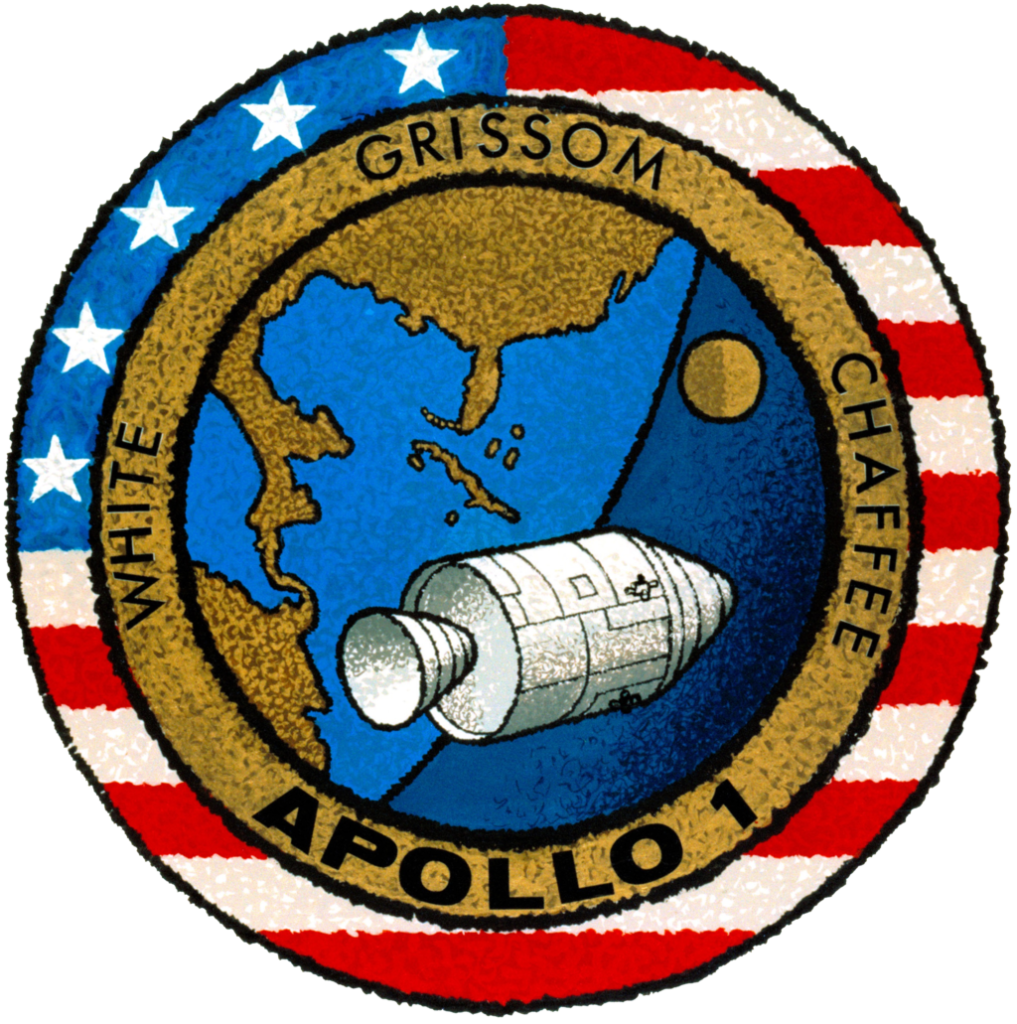
apollo 7
In October 1968 Apollo 7 became the first manned mission when it entered Earth’s low orbit.
Astronauts Wally Schirra, Donn Eisele and Walter Cunningham took part in an 11-day flight. They even made the first live television call in from a spacecraft. They gave a wonderful tour of the spacecraft, showed off their cooking skills and even had the audacity to make jokes.
It was so popular the three astronauts actually won an Emmy award. Even I could go to space and make jokes.
Apollo 8, 9 and 10
Thanks to the successful mission of Apollo 7 where much of the equipment was tested NASA kicked up a gear. Apollo 8 took three astronauts all the way to the far side of the Moon, they didn’t stop though, and back to Earth. This was the first crewed spacecraft to leave lower Earth’s orbit.
I can’t imagine what Frank Borman, James Lovell and William Anders must have been feeling as they left Earth in their Rocket fuel dust. They got a great shot of the Earth though.
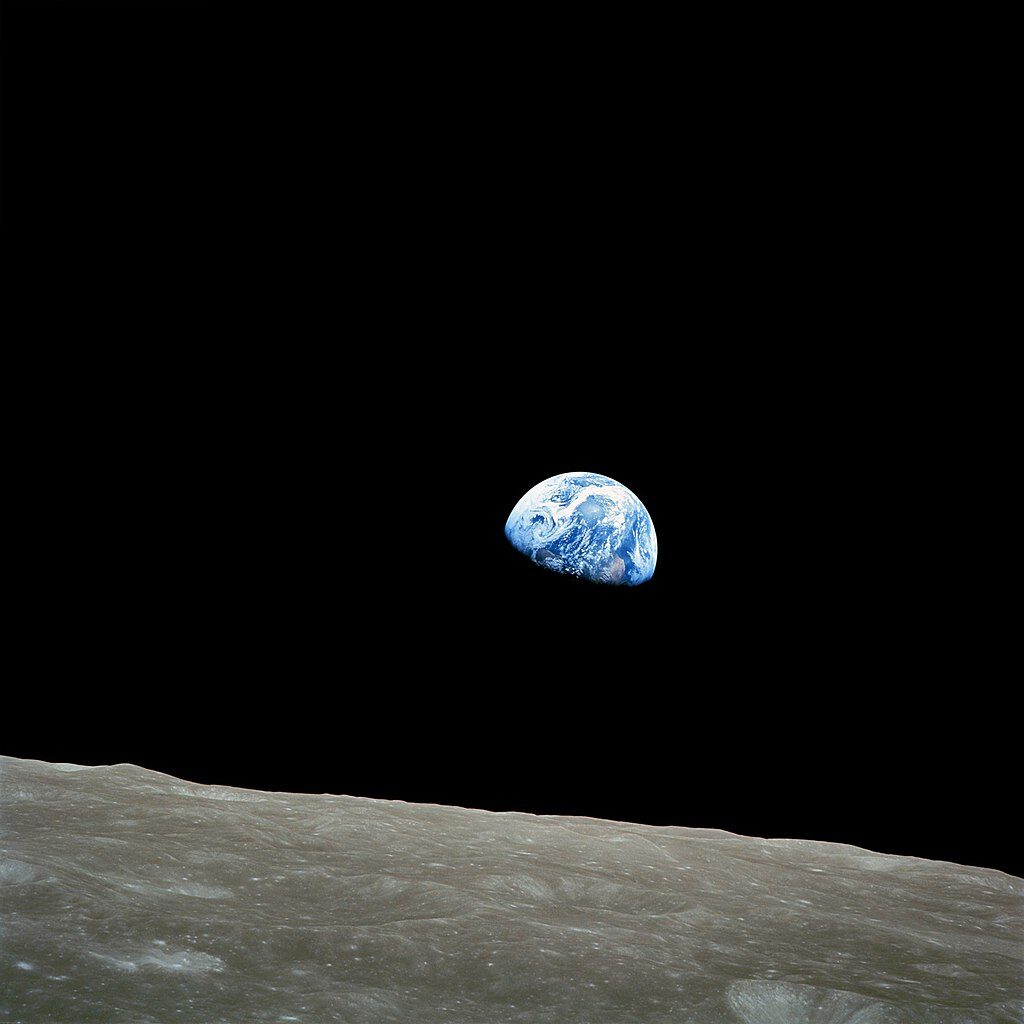
Whilst orbiting the Moon Apollo 8 went around it 10 times. Not wanting to be outdone by Apollo 7 they made a Christmas Eve TV broadcast in 1968- no Emmy though.
Apollo 9 was the third crewed spaceflight mission of Apollo and took place in the lower Earth orbit in March 1969. They tested the module which would eventually take humans to the moon and the lunar module for the first time.
Apollo 10 became the second Apollo flight to orbit the Moon in May 1969. Apollo 10 is often known as the dress rehearsal for the Moon landings. It orbited the Moon 31 times and tested the Lunar module- they didn’t land it but got within 8 miles of the Moon’s surface.
With all the tests and dress rehearsal done it was time for the big one. Landing a human on the Moon.
Apollo 11
It was go time for Apollo 11.
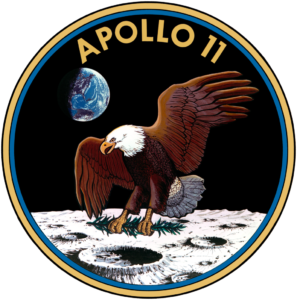
On the 16th of July 1969 at 9.32 a.m. on the dot Apollo 11 blasted off from the Kennedy Space Centre. On board was mission commander Neil Armstrong alongside Buzz Aldrin and Michael Collins- imagine the embarrassment if they’d left someone behind.
76 hours and 240,000 miles later Apollo 11 entered the Moon’s orbit.
The next day Aldrin and Armstrong boarded the lunar module and made their descent. The descent took 2 hours but the Lunar Module landed on the Moon’s surface.
Armstrong radioed mission control and said. “The Eagle has landed”.
Oh- sorry, forgot to mention they’d called the Lunar Module “Eagle”- hence why he said “The eagle has landed”
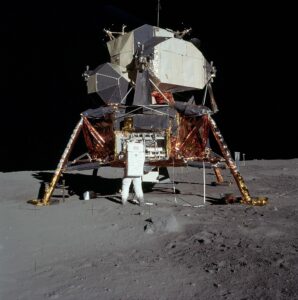
Hours later (probably after a nervous wee) Armstrong opened the Eagle door. A camera attached to the outside of the module was sending a broadcast back to Earth at the same time. Millions of people were glued to their TV sets. You can check it out here- warning, the image quality is as far from HD as you can get.
Armstrong stepped onto the Moon for the first time. “That’s one small step from man, one giant leap for mankind” and the rest as they say was history.
Aldrin dropped down to join Armstrong on the Moon. How do you think it would feel to stand on the Moon or any place, not on Earth? I personally would absolutely love to go to space, but I’m getting old so it’s probably not going to happen for me- it could happen for you though.
Aldrin and Armstrong did the typical tourist thing and took a lot of pictures and conducted science experiments. (My typical holiday). They also erected an American flag- not something I do on holidays.
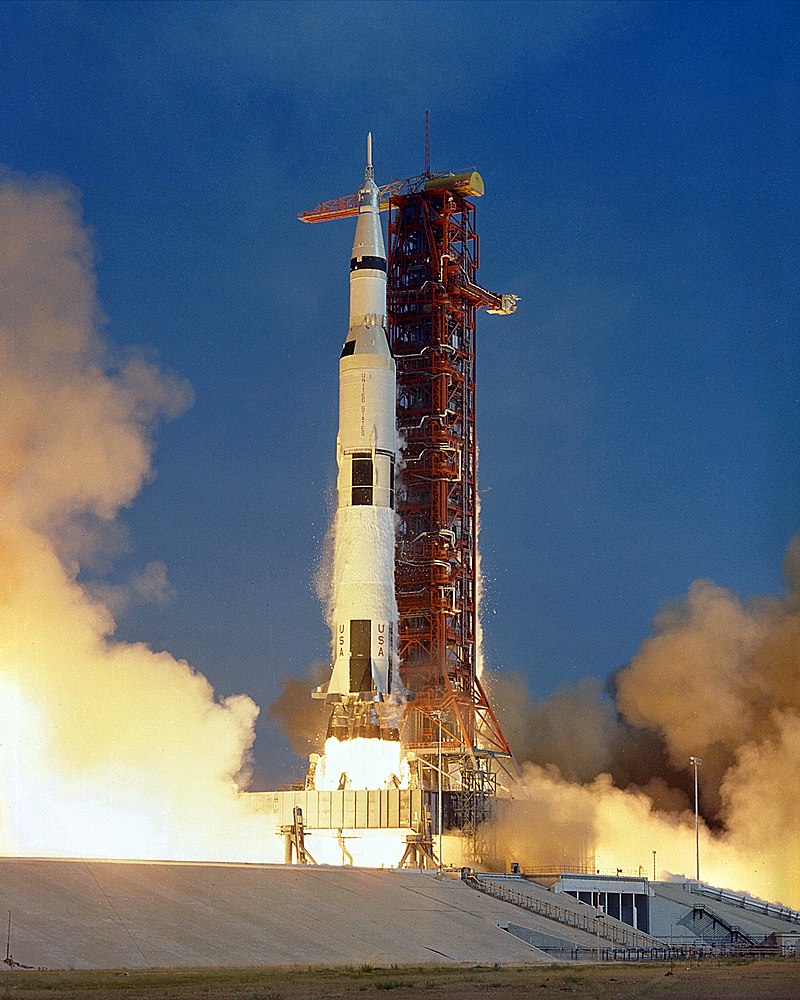
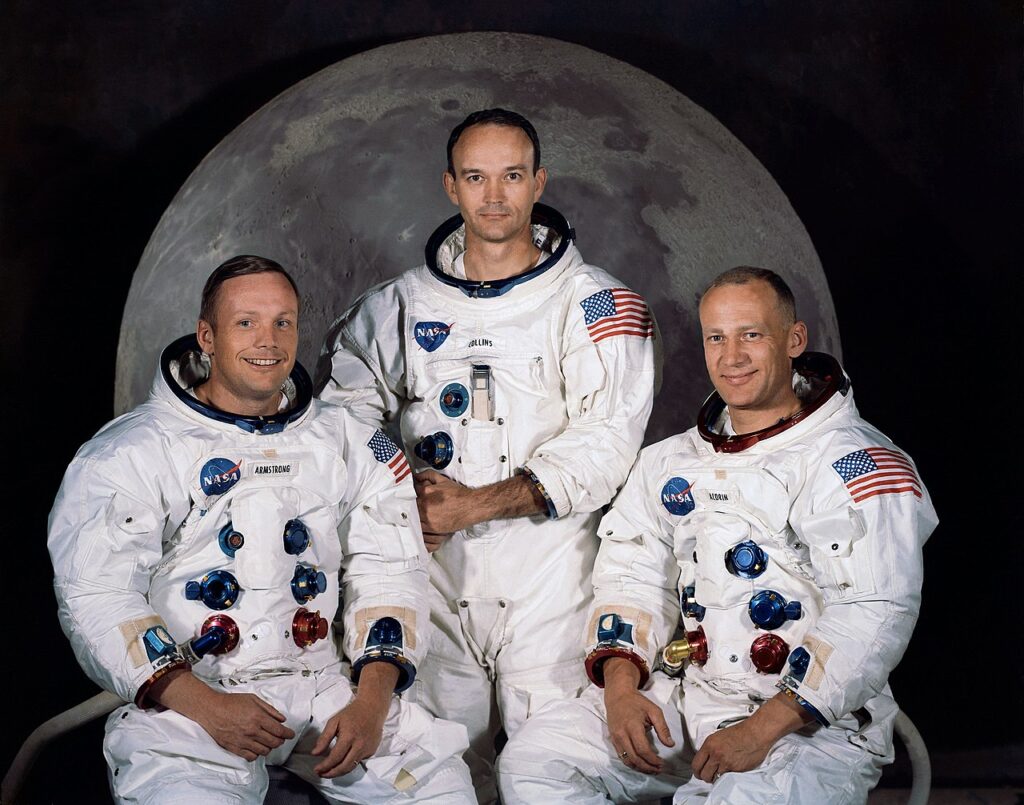
Since Apollo 11 there were five more lunar landings. The last people to step on the Moon’s surface were Eugene Cernan and Harrison Schmitt at the end of 1972.
NASA is currently planning on returning to the Moon in 2025 and I, for one, can’t wait as it’ll be the first time many of us will see people step upon the Moon live and hopefully with the better video quality.
Recommended blogs
Be sure to check out these other similar blogs to what you’ve just read. What do you think of the Apollo 11 mission and would you go to space if you were given the chance? Let me know in the comments below!
